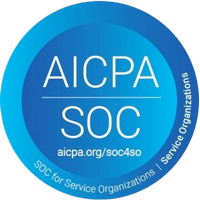Every day, healthcare HR spends time and effort ensuring that workers have their rights protected, appropriate benefits, and a place to talk. But who takes care of HR? Your HR workers are also human, and face work related stress like anyone else. Unfortunately, it can be unclear where HR workers should take their own concerns. Here’s what you can do to help.
Why Employers Need to Support Mental Health for HR Professionals
Protecting mental health for HR professionals needs to be a priority for all healthcare employers. According to one survey by Workvivo, 98% of HR professionals experience some level of burnout—a staggering number. Burnout can affect every facet of a team and business. Not only does universal burnout detrimentally affect culture and increase retention, it also affects your bottom line. After all, it’s hard for employees to be productive when they’re overwhelmed emotionally and logistically.
But there is good news. Approximately 72% of HR professionals believe that mental health resources can attract new candidates, and 86% believe that they can increase retention. If HR professionals believe that mental health resources are helpful to employees, it follows that they can also be helpful to HR professionals themselves. There’s no reason why HR needs to be cut out of conversations about mental health resources.
Challenges That Healthcare HR Professionals Face
What causes the high level of burnout for healthcare HR professionals? Here are some of the challenges that healthcare HR employees face each and every day.
Fast-Paced and Non-Stop Work
The nursing, CNA, and geriatrician shortage means that there are always open positions to fill. It can be difficult for HR professionals to find work-life balance when there’s always more work to be done. And sometimes, without the right technology, this work can become particularly laborious, drawn out, and ultimately, stressful.
Workers often spend their time on tasks that could be easily automated, adding minutes and hours to already jam-packed days. Let’s look at an example. An HR professional who has to manually schedule each candidate for an interview may only take a few seconds to send each scheduling message. But if they’re sending out dozens of messages each day, they could end up spending half their work hours on just this one small part of the hiring process.
High Stakes
Hiring in healthcare directly impacts quality of care, something many healthcare HR professionals are acutely aware of. The urgency can make it difficult for healthcare HR workers to slow down, take a breath, and take moments for themselves. They know that if they don’t fill an open position, someone may not get the care that they deserve. HR professionals are responsible for helping your business grow, but when they’re emotionally and logistically overwhelmed, it becomes more and more difficult.
How to Improve Mental Health for HR Professionals in Healthcare
Now that we’ve reviewed the challenges HR professionals face, the question remains. How can you, as an employer, improve the mental health of your healthcare HR staff? The solution is multi-pronged, and involves everything from opening a dialogue to partnering with the right technology in order to ease work burden.
1. Talk About It
According to the American Psychological Association, 59% of employees experienced work stress in the past month. But an impressive 87% believe that their employers have the power to improve their mental health. Words like stress and burnout shouldn’t be taboo, as it’s clear that so many struggle with them. Talking about it is the first step. Let your employees know that you’re there to discuss mental health with them.
HR is often responsible for employee appreciation, and sometimes HR themselves aren’t appreciated. Reach out to your HR teams specifically to show that you understand the specific challenges of healthcare hiring and employee management. Of course, talking about it should just be the beginning. Pair an open dialogue with concrete mental health initiatives, such as flexible benefits, mental health workshops and programs, or even discounted mental health services, such as therapy apps.
2. Create an Internal Check-In System
Who does HR check in with, if the entire company is checking in with them? Make sure that each employee is familiar with their internal support system. Encourage frequent check-ins with managers and supervisors.
Managers and supervisors should also have a point of contact who they can talk to about stress and workload. Consider establishing lateral check-ins for employees who aren’t able to have frequent managerial check-ins. If you do choose to go this route, make sure that everyone in the check-in process is equipped to respond to HR situations.
3. Invest in Tools That Make HR Jobs Easier
When work is overwhelming, mental health suffers. Investing in tools to make your HR teams’ lives easier can actually promote mental health while simultaneously boosting productivity. This could mean anything from using an applicant tracking system (ATS) to ensure that hiring is simple, to investing in payroll software so no one’s stuck doing the math. Ideally, you’d have a suite of integrated technology that decreases the time your HR team spends doing busywork, so they have time to think big-picture and care for themselves.
Learn how Zimmet Healthcare Services eliminated unnecessary labor with Apploi
4. HR-Specific Surveys
Surveys are a great tool when it comes to understanding what your employees want in the workplace. But the needs of frontline healthcare workers and those of HR professionals can be quite different. When you fold in responses from your HR team with the rest of the organization, their voices may be drowned out. Try using a dedicated employee satisfaction and engagement survey just for your HR team, so you can better understand their specific mental health needs.
5. Encourage Full Use of PTO
Over half (55%) of Americans don’t take their full time off. Meanwhile, 52% say they’ve worked during time off—so even this time is sometimes compromised. When employees take PTO, they can return to work rejuvenated and with increased productivity. Make sure that your employees understand that mental health is a good reason to take time off and feel empowered to use PTO, as well as their daily lunch breaks.
In fact, giving workers time off for mental health isn’t just a good idea—it’s actually mandated. Employers are legally obligated to “accommodate workers with mental health needs” under FMLA and the Americans with Disabilities Act.
How do you encourage full use of PTO while still ensuring that you’re fully staffed? Invest in shift-scheduling software to work out the logistics for you. With the right tools in place, you’ll be able to ensure that your HR team can take personal time off while important work still gets done.
Shift scheduling is coming to Apploi. Join the Schedule Waitlist.
6. Foster Cross-Team Communication
HR professionals are often the ones relaying information—good, bad and neutral—to the rest of the healthcare employee ecosystem. This can be difficult, especially when it comes to bad or unexpected news. It shouldn’t solely fall onto HR to give difficult feedback. Everyone should be involved with helping their team succeed. The more your teams communicate, and the less often your medical staff are blindsided, the less likely it is that HR will have to have truly difficult conversations that could take a toll on mental health.
7. Make it Clear That Mental Health Initiatives Are Also for HR Professionals
It can sometimes feel that mental health initiatives aren’t for those actually making them happen. As you advertise your work-life benefits, make sure you make it clear that these benefits are accessible to everyone . Regardless of what team an employee is on, regardless of whether or not they work on the front-lines of healthcare, they should have equal access to all mental health benefits available.
Better Hiring With Apploi
Take some work off of your plate. Partner with Apploi to automate tasks, easily attract candidates, and onboard quickly, so your HR team is never overloaded again. Schedule a demo today.
![Mental Health for HR Professionals in Healthcare [7 Tips]](https://eggi5ktv3g4.exactdn.com/wp-content/uploads/2023/03/iStock-1391105410-scaled.jpg?strip=all&lossy=1&ssl=1)




